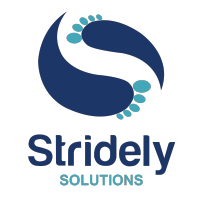Businesses, which need to become future-proof and always remain ahead of time, need to adopt cloud computing as this one move make them future-ready in many aspects. No wonder why cloud computing market is going to touch the mark of $161.39 billion by 2027.
Out of all the available cloud computing options, Oracle Cloud has managed to gain a special stature. Why it is so? What makes it so special? Is it a wise choice to make? Will it be able to leverage the growth as you expected?
Well, you’ll have answers to all these questions by the time you reach the end of the post. So, let’s begin.
A Bit of Oracle Cloud Meaning
Oracle Cloud is a gen-next cloud infrastructure built for the future. It’s basically an extensive platform, featuring multiple cloud services, allowing end-users to build applications are per the need of the hour. The platform is highly secure, scalable, and performance-optimized.
Also Read: Paving your Ways to Smoother Oracle Implementation
Oracle Cloud may not be as seasoned as AWS, it has still managed to gain adequate exposure and customer base. It’s trying to aim higher and is expected to touch the mark of $1 trillion annually by 2026.
The Oracle Cloud has 4 categories in service delivery:
1. Oracle Cloud Infrastructure (IaaS)
This product is designed to give full freedom to the customers in creating & operating the application & administration as per Oracle’s facilitated conditions.
2. Oracle Cloud Applications (SaaS)
Cloud-based applications, offered by Oracle Cloud SaaS, offer a wide range of industry-explicit products and services. The customers are allowed to use a wide range of deployment options to ensure standardized functionality.
3. Oracle Cloud Platform (PaaS)
With Oracle Cloud PaaS, the end-user is allowed to enjoy the capacity and functionality to deploy, assemble, and include the application of their choice.
4. Oracle Data Cloud (DaaS)
This one is a game-changer as it leveraged external data in a way that businesses can use it for growth. It is one using the Oracle ID Graph assistance and rendering a better customer understanding.
Read More: Cloud Migration from JDE to Oracle Cloud – Why and how?
Capabilities of Oracle Cloud
Cloud computing needs can be of various kinds for an organization and Oracle Cloud understood this well in advance. This is why it combined assorted IaaS, PaaS, SaaS, and DaaS solutions to deliver an array of services & products.
- App development- Oracle Cloud lets the users create apps of their choice that covers container, blockchain, database, mobile, Java, IoT, and all other kinds of apps.
- Cloud analytics used for Big Data, data visualization, business intelligence, and other cloud services.
- Cloud for customers
- Cloud infrastructure
- Content and experience management
- Data integration and management
- Data & asset management
- Cloud security solutions
- Data management
- Enterprise integration
- Data integration
What Makes Oracle a Better Choice?
Oracle Cloud is not the only market player in the cloud computing industry. But, there are some of its features and facilities that make it stand out in the crowds.
Oracle Cloud delivers its services on the customers’ terms. Yes, you read it right. While some of the key cloud computing providers offer pre-made subscriptions, Oracle Cloud lets the customer decide the path. In short, customization is at its best form in Oracle Cloud.
Additionally, it’s built for the future. Time and again, the Oracle officials have made it public that their technology is 20 years ahead of AWS. Well, we can’t commit to that. But, we can surely tell you one thing that it makes you future-ready.
Recently, its Storage Cloud has got an expansion and now it offers three kinds of additional services, Oracle Database Backup. Archive Storage, and Object Storage. All these storage options are designed to after keeping the future needs of Enterprise Applications.
Read More: Migration from Oracle Apps to Oracle Fusion – Why and How?
Perks That a Oracle Cloud Customer Might Enjoy
Oracle Cloud is going to be the best investment for a business as it comes with a wide range of advantages. Have a look at them:
-
Enjoy a highly integrated technology stack
With Oracle Cloud, the vendor offers highly streamlined cloud-based business processes by offering facilities like apps, middleware, and database as a unified solution. In short, whatever a business needs to operate or staying functional is covered in one solution. There is no need to look any further. The icing of the cake is a user-friendly environment because of this, the end-user is going to enjoy all of its offerings without any hassles or hurdles.
-
Technology is updated
The core of Oracle Cloud is based on continual upgrades and cutting-edge technology.
Especially, its high-capacity apps are packed with best-of-breed technology. It’s faster and more optimized than many of its competitors. Those who have used Oracle Cloud already swear by its optimized technology.
-
Customization is easier than ever
As quoted above, Oracle Cloud is a customer-centric service and allows end-user to mold the service delivery as per the need of the hour. Such high–end customization is rarely witnessed. Because of this impressive customization, one can make most of the service availed.
-
DaaS is one of its kind
The DaaS offering of Oracle Cloud is indeed an exceptional offering as it perfectly bridges the existing gap between PaaS and IaaS. For beginners, DaaS or Data as a Service is one of the most known breakthrough services of Oracle, using which the vendor has strengthened out its grip on the cloud service. In this service, the organizational data, collected from heterogeneous resources, is going to be used/transformed in a way that the sales team, marketers, and research analysis team are going to make some growth-driven decisions.
-
End-users are allowed to adjust the storage settings
With Oracle Cloud, one has the freedom to enjoy adjustable storage settings. One can set the limit anywhere between 1GB of data and 2 TB each. Users are allowed to connect all the storage together as well.
-
Gain control over network
Oracle Cloud is integrated well with Microsoft’s AD and Lightweight Directory Access Protocol to grant full control over the network. In fact, users are also allowed to set up the firewall of their choice, a right new set of security rules, and override the default settings.
Network access can be deleted, disabled, and even block as per the choice of the end-user.
-
Stay safe with an in-built VPN
Safe and secure browsing is now possible easily as a network from Oracle is offered with a site-to-site VPN and allowed end-users to set up multiple tunnels. Not only this; end-users are allowed to add a wide range of IP addresses manually. The Oracle Cloud Network Service also promises a speedy connection between Oracle Server and others user’s networks.
Limitations of Oracle Cloud
From the above text, it’s clear that Oracle Cloud is going a commendable job in simplifying cloud computing for its customers and we admit openly that it has succeeded to a great extent. However, this is not always a great deal to make as there are few limitations, which should be in your knowledge before you make up your mind.
- Keep in mind that there are no keyboard shortcut keys offered with Oracle cloud. So, you’ll always have to take the long route.
- If you’re fond of highly visually appealing layouts then get ready to face disappointment as Oracle cloud’s layout is not as appealing as AWS or Microsoft Azure.
- Oracle Cloud also lacks at offering integration. Not many third-party software integrations are offered. However, the key ones are available.
- If you’re thinking that you’ll get ample self-help material, while using Oracle cloud, then keep your expectations low as there are no many tutorials available.
- Some of its customers have lodged complaints about its incompetency with the .NET framework.
But, if we weigh down both the pros and cons, the pros are definitely more impressive and are enough to overlook the cons.
So, you can easily put your bet on it.
Oracle Cloud Adoption Strategies
If you have made up your mind to make Oracle Cloud a part of your ecosystem then keep in mind that it’s not going to be an easy job. Migrating the entire existing IT infrastructure to the cloud is indeed a tedious job. To make sure things go smooth, here are some key tips to adopt.
- Always keep a backup of the data before initiating the migration process as no matter how diligently the migration is involved, some data loss is bound to happen. Thus, taking up a backup ensures that you don’t lose something crucial.
- Sort the data and eliminate the unnecessary ones. It’s our habit to store everything in a hope that it will come into use in the future. But, a few things/data/app/documents are only for one-time use. There is no point in investing efforts in such items. So, put some effort into sorting out the things.
- Make sure security is not compromised during the migration. It’s better to put access restrictions to achieve maximum peace of mind.
- Always hire a seasoned Oracle Cloud expert for the migration. It’s not a novice’s job and should be handled with perfection only. So, do a bit of market research and hunt down an ideal Oracle Cloud consultant.
Summary
Moving to the cloud is like hitting many birds with one stone as it saves IT cost, empowers the team, makes remote work possible, and grants great operational freedom. Oracle Cloud is a great choice to make as it’s an entirely customer-centric cloud infrastructure.
While there are tons of advantages, one can’t simply ignore the fact that no product is perfect and Oracle Cloud also comes with its fair share of disadvantages. So, make sure you know them beforehand.
To curb the migration hassles and ensure 100% accuracy and resilience in the Oracle migration, it’s wise to hand over the job to the experts’ hands. Stridely’s decade-long experience can be of great help for you in this regard. Using our expertise, one can have a good night’s sleep while Oracle migration is happening.
Interested in discussing things further? Contact us.


